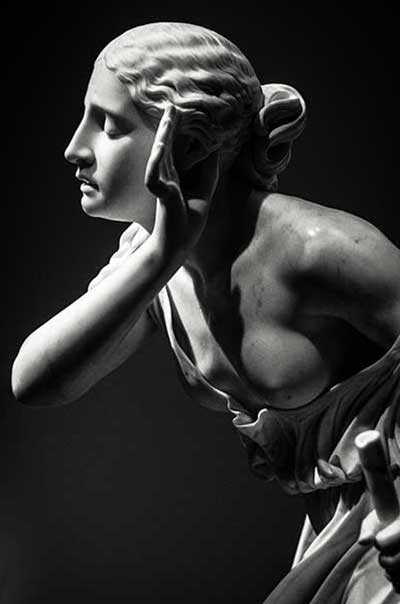
Licence Photography:
Public Domain
The Naked Truth About Gustav Klimt
Gustav Klimt was very successful in 1900-1918, described as Klimt’s “Golden Phase”. His gold technique was acquired when his father was a gold engraver. The family of the low-paid goldsmith had a difficult life as immigrants and lived in relative poverty. When he was young and graduated from Vienna’s art school, there was a strong demand for architectural paintings, interior works and decorative ornaments. Klimt and his talented brothers were commissioned to decorate theatres and other large public building projects of the Austrian Empire. After completing those projects, he became a professional interior mural painter using an extraordinary style with a keen eye for details.
Gustav Klimt reached fame and success as a mural painter. However, at the same time, he received harsh criticism from the religious, even artistic societies and those who were surprised by his unconventional and radical themes. Klimt’s reaction to those critics resulted in a career turning point, ignoring the fundamental customary principles. Schiller’s quote, “If you cannot please everyone with your actions and your art, you should satisfy a few”, is shown in the figure of Nuda Veritas, or “Naked Truth”, painted by him in 1899. This painting reflects the same mentality by Klimt, as his favourite German poet Schiller meant in those words. [1] Klimt cloistered himself and kept his faith to survive only with his artistic beliefs.
Gustav Klimt & The "Secession" Meetings
From a classicist painter trained in an academic study, Klimt turned to be a prominent artist in a new radical style of Art Nouveau. He resigned from the traditional art associations with other like-minded artists. They founded their new union, known as “Vienna Secession”, which rose against the art establishment’s oppression. . Klimt only attended these so-called “Secession” meetings and participated with other members to protect the movement. [2] But beyond that, he avoided any new social contact and retreated himself from the public eye.
Emilie Louise Flöge was the only female partner officially known as his partner. [3] However, Klimt had numerous intimate affairs with women while his primary work subjects were females. But he took care not to cause any scandalous gossips.
Klimt’s figurative work as a symbolist painter was marked by swirling forms and patterns. He developed a distinguished style influenced by methodological shapes and used detailed allegorical designs to convey his conceptual imaginations.
After suffering from pneumonia, he died at 55 with many unfinished works. [4] However, we can still learn from his creative ideas by looking at those incomplete paintings.
Get more information on this overview page.
Text: Lalerou
© Copyright. All Rights Reserved
1- Nuda Veritas, 1889 by Gustav Klimt. (n.d.). Gustav Klimt Paintings, Biography, and Quotes. Retrieved February 21, 2023, from https://www.gustav-klimt.com/Nuda-Veritas.jsp
2- Rosenman, R. (2017). Vienna Secession – A History. Retrieved February 22, 2023, from https://www.theviennasecession.com/vienna-secession/
3- Stańska, Z. (2017, March 25). Gustav Klimt And Emilie Flöge – The Everlasting Friendship. DailyArt Magazine. Retrieved February 23, 2023, from https://www.dailyartmagazine.com/gustav-klimt-emilie-floge/
4- Gustav Klimt. (2022, October 7). Biography. Retrieved February 24, 2023, from https://www.biography.com/artists/gustav-klimt
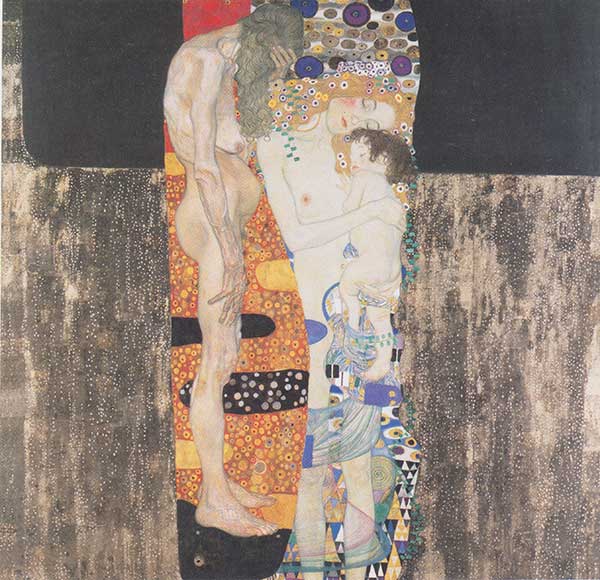
Archivio digitale della Galleria Nazionale
Photographer: repro from artbook
Licence Photography: (CC BY-SA 4.0)
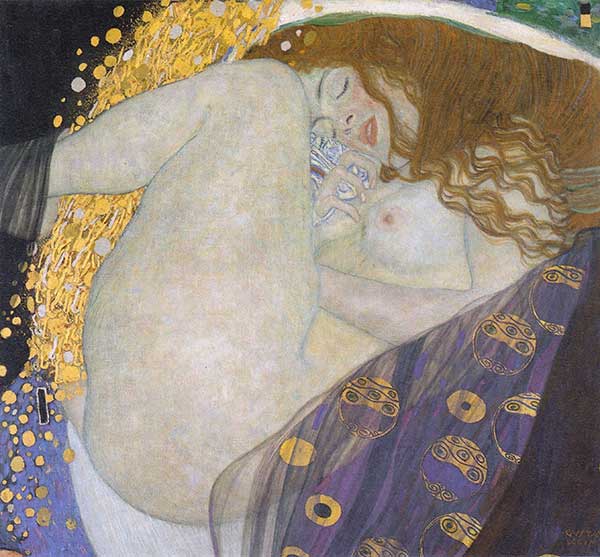
Klimt – Danae – 1907-08
Photographer: repro from artbook
Licence: Public Domain
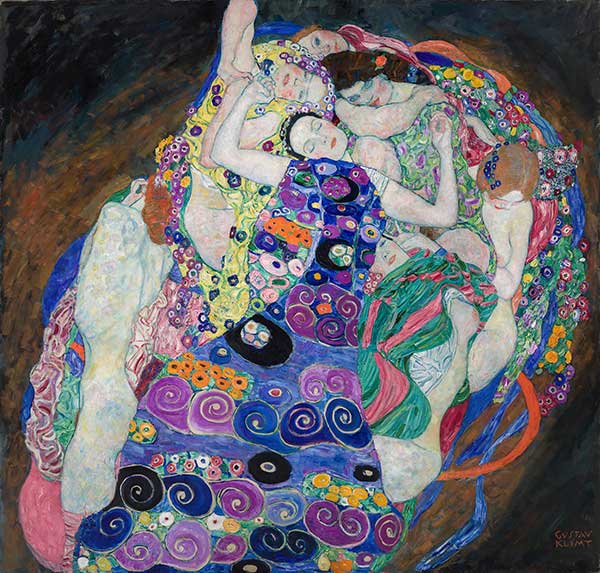
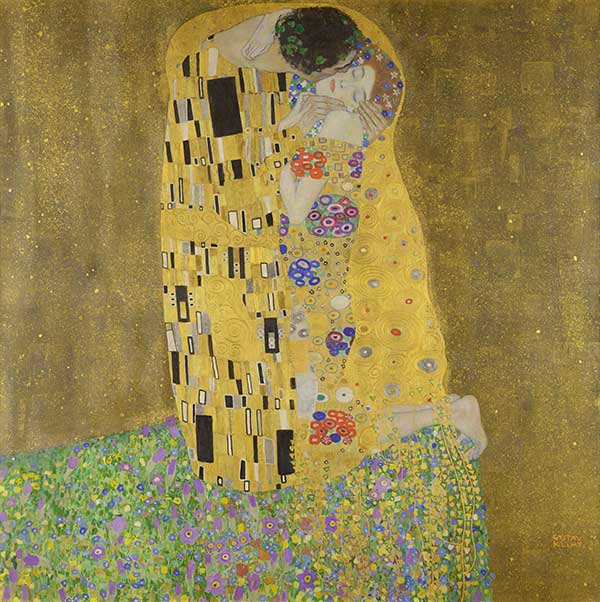
- Category: Modern Art Styles In Painting
Vintage
Vintage
Ornamental
